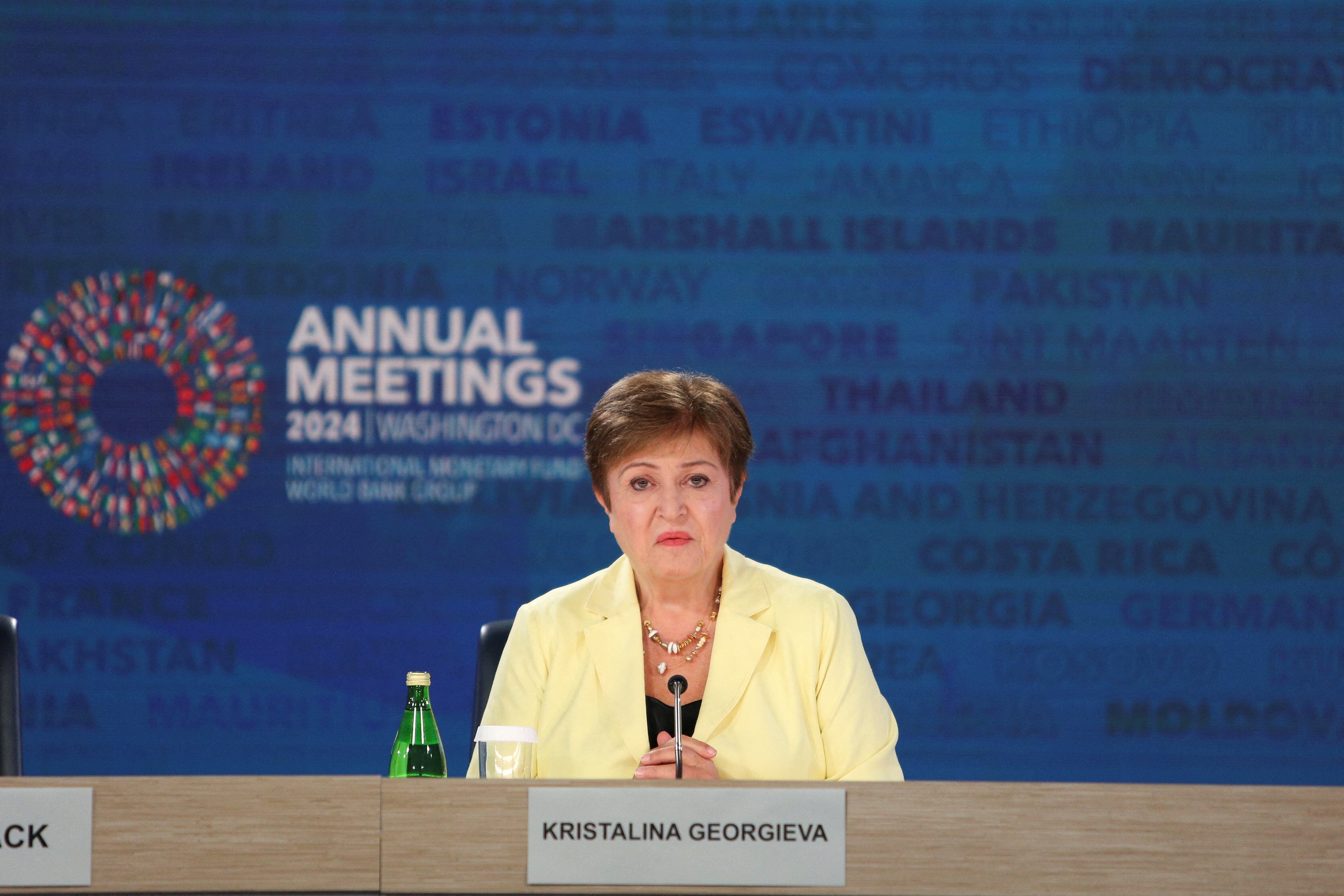
A further productivity improvement It is the pending issue for the Spanish economy, according to the International Monetary Fund (IMF), which this Thursday highlighted Spain’s strong growth and the factors that drive it. Alfred Kammer, director of the European department of the IMFbelieve that for that increased productivity Structural reforms are necessary, but many of them have to do with greater European integration. Strengthening the single market It is the Fund’s recipe to boost growth that for now is well below its potential in Europe.
Kammer highlighted in a press conference during the IMF meetings in Washington that Spain is having “very strong growth”. He has linked it in part to the strength of tourism, which he relates to the recovery from the pandemic. He has also pointed out that the drop in interest ratesincreased confidence and recovering investment are supporting growth. On the supply side, the large increase in employment has been supported by immigration, he added.
“These have been the engines of growth in Spain,” he added. “They will moderate a little in 2025, but they will continue and, of course, the implementation of the European Next Generation funds will not only have positive impacts in the short term, but also impacts on the medium-term growth projections for Spain,” he added, before to move on to your recommendations.
“When you look at the growth, has been labor intensiveso it has been driven by an increase in employment. In the future, what we need to see is a growth performance that is driven by increased productivity,” he said, to underline that “productivity is a problem in each of the countries of Europe, and that it must be the focus of strong political reforms.”
“The most important thing is that these are reforms that must be carried out across the EU to achieve productivity increases that we need in the single market, so that companies can grow at scale, go to the frontier of global technology and produce and see a very dynamic business sector. That is a problem for Spain, but it is a problem for all other countries, and Europe can help there,” he concluded.
Previously, Kammer had highlighted how “the European recovery has fallen short of its full potential and, more importantly, the medium-term prospects are no better.” Uncertainty about persistent underlying inflation, the direction of economic policies and geopolitical conflicts weigh on the short-term outlook, according to its economists. The Fund points out the contrast between some countries that have benefited from the growth of services (Spain, France, Poland and the United Kingdom) and other intensive manufacturing (Germany and Austria) that have been weighed down by weak demand for goods.
Single market
In the longer term, perennially weak productivity growth and new headwinds from uncertainty about the effects of fragmentation, climate change and other structural changes hold back potential growth. “Addressing the main political uncertainties and eliminating structural barriers would strengthen growth in both the short and long term,” the agency says.
The Fund shares the conclusions of the reports on the long-term prospects of the European Union prepared by Enrico Letta and Mario Draghi. It indicates that, in advanced European economies, the lack of market scale and access to capital and skilled labor prevents companies from operating on the global frontier of technology and innovation. “For Europe to achieve its full growth potential, a broader and more integrated single market is necessary, especially for goods, services and capital,” he argues. “A fully developed single market will provide businesses and entrepreneurs with the scope to innovate and increase growth in a sustainable way; It will also facilitate structural reforms and increase investment incentives in converging countries,” he adds.
Furthermore, he considers that deepening European integration It is also the best response to global uncertainties. “By insulating businesses and labor markets from the pressures of global fragmentation, a more complete single market would strengthen economic resilience in a world prone to shocks,” he maintains.
The IMF believes that the time has come for fiscal policy rebuilds buffers and guarantees debt sustainability, which has increased substantially since 2020 in response to the crises. The organization applauds the shift that is taking place in fiscal policy in the euro zone. “The new European fiscal governance framework represents a crucial step to reduce debt and strengthen sustainability, and should be implemented as planned,” he says.
Managing the necessary fiscal adjustment will require spending prioritization and structural fiscal reforms, according to the Fund, which calls for fiscal adjustment to be concentrated in the initial phase in highly indebted countries to demonstrate resolve, ensure market confidence and create room for meet future spending needs.
Regarding the financial sector, the IMF calls for closely monitoring the risks. He admits that banks have significant capital reserves, but warns that vulnerabilities such as exposure to the commercial real estate sector could be exacerbated by a possible recession. Furthermore, he insists that it is key to avoid the migration of risks to non-banking financial intermediaries, especially those with high portfolio concentration, high leverage and liquidity imbalances.

